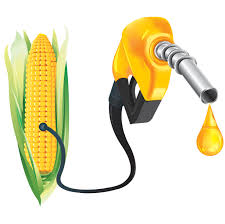
A request of the EPA by Oklahoma Gov. Kevin Stitt and four other governors for a biofuels waiver for small refineries has sparked a growing battle with corn growers and environmental groups.
The corn-growing industry is adamantly against the request to suspend the regulatory requirement of blending billions of gallons of corn-based ethanol into gasoline every year.
“We’re talking about a multi-billion dollar compliance cost that is going to impact whether some can continue operating the same way,” said Geoff Moody, senior director of government relations for the American Fuel and Petrochemical Manufacturers trade group, which represents refiners.
Biofuel and farm groups slammed the idea proposed by Gov. Stitt and governors of Texas, Utah, Wyoming and Louisiana.

“We remind the Administration that oil refiners are not the only ones suffering from the economic fallout of the current situation,” said Brian Jennings, the head of the American Coalition for Ethanol, which had asked the administration earlier this month to expand ethanol blending requirements.
“Ethanol producers, and the farmers supplying them corn, are suffering a proportional economic disaster,” he said.
The corn lobby, meanwhile, has been pushing for the blending requirements, mandated under the U.S. Renewable Fuel Standard, to be expanded to help farmers who have seen demand for their crop drop swiftly as biofuel plants across the country go idle.
While the refining and corn industries have clashed for years over the biofuel blending requirements, the issue is now being framed as a matter of survival.
A spokesperson for the Environmental Protection Agency (EPA), in charge of overseeing the RFS, said the agency is watching the situation closely and “will make the appropriate determination at the appropriate time.”
As a result, refiners have slashed output and seen gasoline profit margins fall to the lowest since 2008.
While many refiners were in strong cash positions at the start of the coronavirus pandemic, others that have spent much of their cash acquiring new plants, such as PBF Energy Inc , are significantly more distressed.
Valero Energy Corp, one of the biggest refining companies in the United States, meanwhile, warned of an up to $2.1 billion first quarter loss due to the coronavirus pandemic, and plans to defer tax payments and certain planned expenses in its refining and ethanol businesses.
Top refiner Marathon Petroleum Corp, meanwhile, has idled a plant in New Mexico due to falling demand.
But the ethanol industry is being crushed too.
Nearly half of U.S. ethanol production capacity has been idled as a result of the falling fuel demand, according to Geoff Cooper, the head of the Renewable Fuels Association. Further, output cuts disrupt local demand for corn as producers buy less of the feedstock.
Source: Reuters






